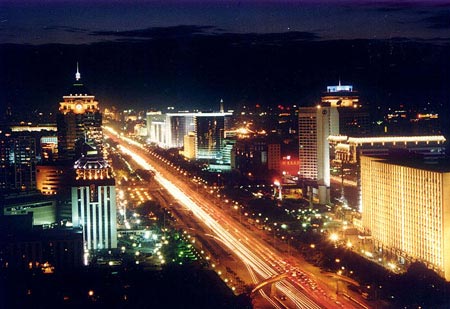Beijing 'yet to become' an int'l city
With foreigners accounting for just 0.46 percent of its population, the capital is still far from being designated an international city, a leading expert said.
 |
|
Beijing |
"Neither Beijing nor Shanghai can call themselves international cities until expats make up at least 10 percent of the population," Ren Yuan, a professor at the School of Social Development and Public Policy at Fudan University, said.
Foreigners account for 30 percent of London's population and 15.6 percent of New York's, Ren said.
The Beijing municipal bureau of statistics said on Thursday that 91,128 expats were living in the city as of Nov 11, 2010, while Beijing's total population was 19.61 million, citing figures from the sixth national census conducted last year.
Apart from job opportunities and salaries, immigration policy is a major factor.
Martin Derbyshire, from the UK, is an art teacher at an international school in Beijing. The 42-year-old, who has lived in China for 16 years, said he hopes the census is a sign of an even greater degree of openness toward foreigners.
"It would be great if the inclusion of foreigners proves to be an indication that steps are being taken to make the process of becoming a permanent resident of China simpler and easier."
Immigration policy should be improved, said Duan Chengrong, a professor in demographics at the School of Sociology and Population at Renmin University of China.
"We have to be more open to foreigners, because some foreign communities have been established in Beijing, and this brings a multicultural identity to the city," Duan said.
Almost 80 percent of Beijing's expats, according to the census, live in Chaoyang and Haidian districts, home to some well-known expat communities such as Wangjing and Wudaokou.
Many expats work at multinational corporations based in Chaoyang and universities in Haidian, said Duan.
The census shows that 39.5 percent of expats came to Beijing to study, many at universities in Haidian.
"Beijing has the best universities in China," said Michael Chung, a Canadian.
The 24-year-old freshman at Peking University said he came to Beijing to learn Chinese two years ago.
"I hope I can stay in Beijing after I graduate. There are more opportunities," Chung said.
 0
0 






